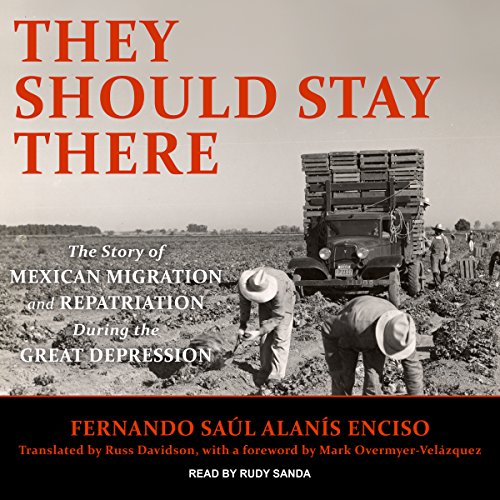
They Should Stay There
The Story of Mexican Migration and Repatriation During the Great Depression
Failed to add items
Add to Cart failed.
Add to Wish List failed.
Remove from wish list failed.
Follow podcast failed
Unfollow podcast failed
Buy Now for $20.04
No default payment method selected.
We are sorry. We are not allowed to sell this product with the selected payment method
-
Narrated by:
-
Rudy Sanda
About this listen
While Mexicans were hopeful for economic reform following the Mexican revolution, by the 1930s, large numbers of Mexican nationals had already moved north and were living in the United States in one of the 20th century's most massive movements of migratory workers. Fernando Saúl Alanis Enciso provides an illuminating backstory that demonstrates how fluid and controversial the immigration and labor situation between Mexico and the United States was in the 20th century and continues to be in the 21st.
When the Great Depression took hold, the United States stepped up its enforcement of immigration laws and forced more than 350,000 Mexicans, including their US-born children, to return to their home country. While the Mexican government was fearful of the resulting economic implications, President Lázaro Cárdenas fostered the repatriation effort for mostly symbolic reasons relating to domestic politics. In clarifying the repatriation episode through the larger history of Mexican domestic and foreign policy, Alanis connects the dots between the aftermath of the Mexican revolution and the relentless political tumult surrounding today's borderlands immigration issues.
©2017 The University of North Carolina Press. Originally published in Spanish with the title Que se queden allá: El gobierno de México y la repatriación de mexicanos en Estados Unidos (1934–1940), 2007 El Colegio de la Frontera Norte, Tijuana, Baja California, México; El Colegio de San Luis, San Luis Potosí, S.L.P. México; and Fernando Saúl Alanís Enciso. (P)2017 Tantor
